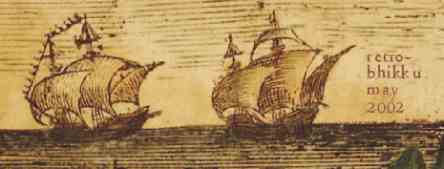
we want the finest wines available to humanity:
Yes, it's all true. All the stereotypes of rural Englishness are not merely figments of an ad-man's deranged imagination, they are everyday realities with which some of us must co-exist. Just down the road from the location pictured above is the cybercafe from which I upload entries, stuffing myself with dundee cake the while, washed down with tea from the urn (thirty pence the first cup, twenty-five for those subsequent). And then out onto the green for a dozen overs of wristy spin against Minchinhampton first XI. Churchgoing, packed dirt, a dying cat, a traded car And I love this photograph, packed with universals as it is: the road, the elements, human sleep; and just as in Rousseau's Sleeping Gypsy, we aren't sure whether the surroundings of the sleeping person are reality, or the fabric of their dream. sataa vettä
. . . he strolled down to the landing stage, which Moominpappa had built, sniffing the sea air. It was quite still; the rain was falling softly and each drop made a ring in the gleaming water.
from Finn Family Moomintroll, by Tove Jansson WHICH HARRY POTTERTM CHARACTER ARE YOU? (Having seen so much of this stuff around) QUESTION: If you had magic powers, would you use them for
And if you'd care to wait for the cgi version with the cutesy little link icons that you put on your site, your wait will be longer than time itself . . . I am a parcel of vain strivings tied
Thoreau died on May 6th in 1862: he was 44.
chinese whispers History as literary science fiction via robot wisdom: extracts from first millenium chinese accounts of expeditions to the middle east (Babylonia, Syria, Byzantium, Egypt), texts written and rewritten over a few hundred years. They make coins of silver, which have the king's face on the obverse, and the face of his consort on the reverse. When the king dies, they cast new coins. They have the ostrich. They write on parchment, and draw up documents in rows running sideways.
Their kings are not permanent rulers, but they appoint men of merit. When a severe calamity visits the country, or untimely rain-storms, the king is deposed and replaced by another. The one relieved from his duties submits to his degradation without a murmur. In the west of the sea there is the city of Ali-san (Alexandria) . . . the people are tall, and upright in their dealings, like the Chinese, but wear foreign dress . . . They can read foreign books. They regulate by law public and private matters. The palace buildings are held sacred. They hoist flags, beat drums, use small carriages with white canopies. In this country all the domestic animals come out of the water. The country is hot and low. It produces lions, rhinoceros, zebu, peacocks, and large birds whose eggs are like urns. ( 'Birds that can run like hares and lay eggs the size of the bowl you see in a steam laundry where they keep the chemical water for taking the tar out of men's pants.'
Tin. Tortoises. White horses. Red hair. Tortoise shell. Black bears. Large conches. Carnelian stones. Southern gold. Kingfishers' gems. Ivory. This country lies between two seas. It is peacefully governed, and human dwellings are scattered over it like stars. Crossing the desert . . . there are two countries called Mo-lin (Upper Kush) and Lao-p'o-sa (Lower Kush). Their inhabitants are black and of a violent disposition. The country is malarious and has no vegetation. They feed their horses on dried fish, and live themselves on dates. They are not ashamed to have most frequent illicit intercourse with savages; they call this "establishing the relation between lord and subject." On one of seven days they refrain from doing business, and carouse all night. Rooting around, I also came across this account of the West by Hsieh Ch'ing Kao, a sailor who was in Europe at the end of the eighteenth century. He's particularly good on America: America is a small isolated island in the middle of the ocean. It could be reached by sailing west for about ten days from England. Formerly it was part of England but now is an independent country, although the customs and practices of the two countries still remain alike. This land is called 'Flowery Flag' by the Cantonese.
Water transportation in this country is done by means of boats which have wheels on the side and a fire engine in the center. When a strong fire is generated, the wheels are set in motion, thereby propelling the boat forward. The construction of such a boat is clever and ingenious, and other countries are following the example. ( 'His dadda is in far Amurikey.'
The Calves of Cyclists
Driving across Gloucestershire
after Atget
proverbs help us all to be . . . better mouseketeeers From the Swahili: Avumaye baharini papa kumbe wengi wapo. - The shark is the famous one in the sea, but there are many others. Fimbo ya mbali hayiuwi nyoka. - A weapon which you don't have in your hand won't kill a snake. Kinyozi hajinyoi. - A barber does not shave himself. Kizuri chajiuza kibaya chajitembeza. - A good thing sells itself, a bad one advertises itself. Msitukane wagema na ulevi ungalipo. - Do not abuse palm-wine tappers if you wish for drunkenness. Nifae na mvua nikufae na jua. - Do me a favour during the rainy season, and I shall do the same for you during the dry season. Umejigeuza pweza, unajipalia makaa? - Have you changed into a cuttlefish, that you heap live embers on yourself? Not too sure of the meaning of this last one - the habits of cephalopods are always complex . . . the sympathetic unselfishness of the oyster
Everyone's been doing opening lines, so here's my tuppence-worth:
He sat, in defiance of municipal orders, astride the gun Zam-Zammah on her brick platform opposite the old Ajaib-Gher - the Wonder House, as the natives called the Lahore Museum. Who hold Zam-Zammah, that 'fire-breathing dragon', hold the Punjab; for the great green bronze piece is always first of the conqueror's loot.
Fog everywhere. Fog up the river, where it flows among green aits and meadows; fog down the river, where it rolls deified among the tiers of shipping and the waterside pollutions of a great (and dirty) city. Fog on the Essex marshes, fog on the Kentish heights. Fog creeping into the cabooses of collier-brigs; fog lying out on the yards and hovering in the rigging of great ships; fog drooping on the gunwales of barges and small boats.
The sun shone, having no alternative, on the nothing new.
Mr Hackett turned the corner and saw, in the failing light, at some little distance, his seat.
Ever since childhood, when I lived within earshot of the Boston and Maine, I have seldom heard a train go by and not wished I was on it.
I have resolved on an enterprise which has no precedent, and which, once complete, will have no imitator. My purpose is to display to my kind a portrait in every way true to nature, and the man I shall portray will be myself.
The tree where man was born, according to the Nuer, still stood within man's memory in the west part of the south Sudan, and I imagine a great baobab thrust up like an old root of life in those wild grasses that blow forever to the horizons, and wild man in naked silhouette against the first blue sky. That bodeful man of silence and the past is everywhere in Africa. One hears the silence, hears one's step, and
stops . . . and he is there, in the near distance. I see him still: a spear point glitters in the sun. Being the first lines of:
from Kilvert's Diary Francis Kilvert was a nineteenth century clergyman who lived most of his working life in rural areas on the Welsh/English border. He died at 39, leaving behind 22 fat notebooks which contained his diaries - nineteen of which were destroyed by an elderly relative. Saturday, 16 January 1875
In the Common Field in front of the cottages I found two little figures in the dusk. One tiny urchin was carefully binding a handkerchief round the face of an urchin even more tiny than himself. It was Fred and Jerry Savine. 'What are you doing to him?' I asked Fred. 'Please, Sir', said the child solemnly. 'Please, Sir, we'm gwine to play at blindman's buff.' The two children were quite alone. The strip of dusky meadow was like a marsh, and every footstep trod the water out of the soaked land, but the two little images went solemnly on with their game as if they were in a magnificent playground with a hundred children to play with. Saturday, 23 January 1875 When I went to bed last night I fancied that something ran in at my bedroom door after me from the gallery. It seemed to be a skeleton. It ran with a dancing step and I thought it aimed a blow at me from behind. This was shortly before midnight. Sunday, 24 January 1875 Last night I dreamt I saw a great whale caught in Weymouth Bay. I watched the huge bulk heave and tumble in the sea. Thursday, 4 March 1875 Old William Halliday . . . told the story of how Squire Sadler Gale of Bulwich House at Allington made himself wings and flew off the garden wall. 'Watch I vlee!' he cried to the people. Then he dashed down into the horsepond. There stands the awful home of murky Night wrapped in dark clouds. In front of it the son of Iapetus stands immovably upholding the wide heaven upon his head and unwearying hands, where Night and Day draw near and greet one another as they pass the great threshold of bronze: and while the one is about to go down into the house, the other comes out at the door.
And the house never holds them both within; but always one is without the house passing over the earth, while the other stays at home and waits until the time for her journeying come; and the one holds all-seeing light for them on earth, but the other holds in her arms Sleep the brother of Death . . . and there the children of dark Night have their dwellings, Sleep and Death, awful gods.
Hesiod, Theogony Sleep was Death's little brother, and used to be devoted to him, following him everywhere around the house, although some of Death's worst excesses sent him scurrying behind the skirts of his mother, Night.
You Were Wearing You were wearing your Geegaw t-shirt
(with apologies to Kenneth Koch). Geodesic waffles - remember, you heard about them here first. The Three Cats A very curious thing happened to me at half-past four,
yesterday. Three visitors came knocking at my door, begging me
to let them in. And when I opened the door, who do you think they
were?
Double your amusement by reading this to yourself in Eliot's own voice (should you have heard him do his stuff).
Chard Whitlow
(Mr. Eliot's Sunday Evening Postscript) As we get older we do not get any younger.
There are certain precautions - though none of them very reliable -
I think you will find this put,
Oh, listeners,
And pray for me also under the draughty stair.
- Henry Reed
|
home
'Minnie Mouse, because she can get me close to Mickey.'
- Andy Warhol, on being asked who his favourite Disney character was.
We do not play on Graves -
Because there is'nt Room - Besides - it is'nt even - it slants And People come - - Emily Dickinson |
|
home ~ retrobhikku |

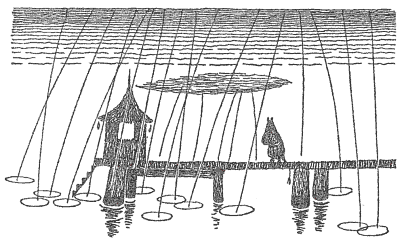

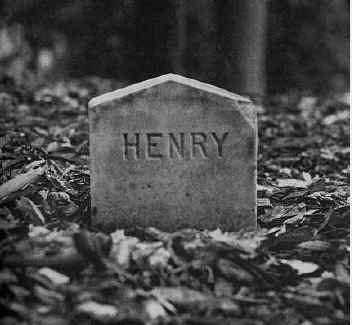
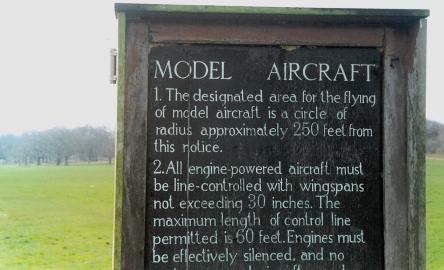
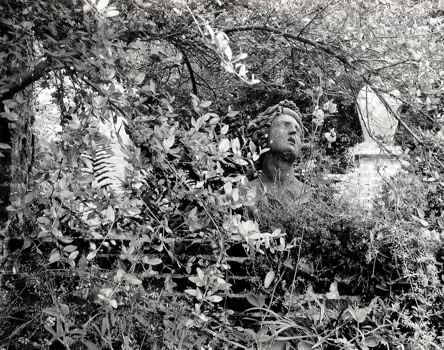


- Apollonius Tyanaeus, 1st cent. A.D.